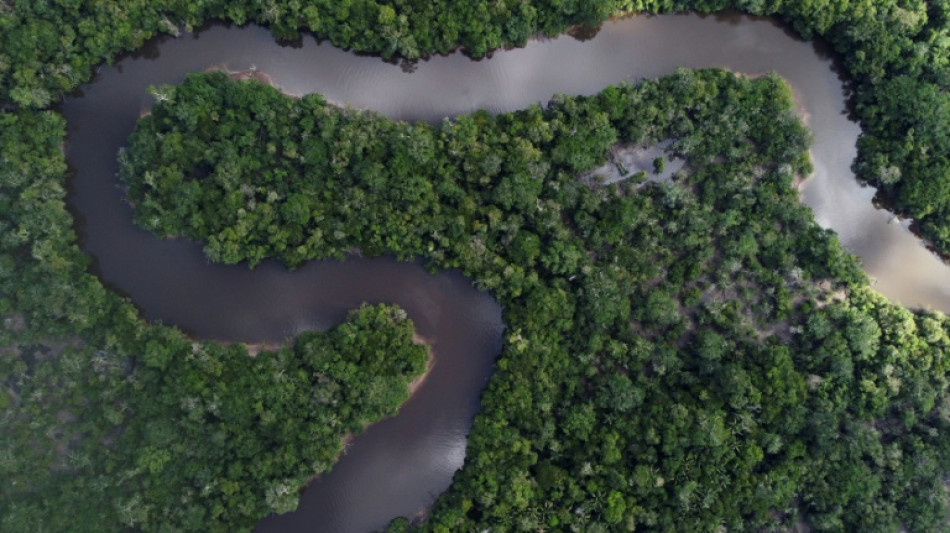
-
 A Friday night concert in Kyiv to 'warm souls'
A Friday night concert in Kyiv to 'warm souls'
-
PSG stunned by rampant Rennes, giving Lens chance to move top

-
 Japan's Totsuka wins Olympic halfpipe thriller as James misses out on gold
Japan's Totsuka wins Olympic halfpipe thriller as James misses out on gold
-
Indian writer Roy pulls out of Berlin Film Festival over Gaza row
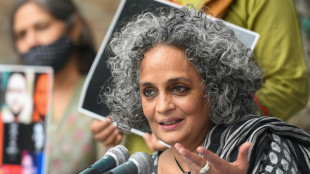
-
 Conflicts turning on civilians, warns Red Cross chief
Conflicts turning on civilians, warns Red Cross chief
-
Europe calls for US reset at security talks

-
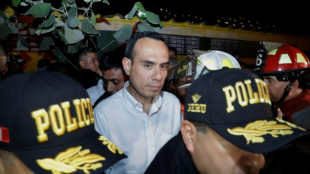 Peru leader under investigation for influence peddling
Peru leader under investigation for influence peddling
-
Rising star Mboko sets up Qatar Open final against Muchova

-
 Canada PM to mourn with grieving town, new details emerge on shooter
Canada PM to mourn with grieving town, new details emerge on shooter
-
US waives Venezuela oil sanctions as Trump says expects to visit

-
 NBA star Chris Paul retires at age 40 after 21 seasons
NBA star Chris Paul retires at age 40 after 21 seasons
-
WTO chief urges China to shift on trade surplus

-
 Vonn hoping to return to USA after fourth surgery on broken leg
Vonn hoping to return to USA after fourth surgery on broken leg
-
Trump sending second aircraft carrier to pile pressure on Iran

-
 Heraskevych loses Olympics disqualification appeal, Malinin eyes second gold
Heraskevych loses Olympics disqualification appeal, Malinin eyes second gold
-
Mercedes have 'taken a step back': Russell

-
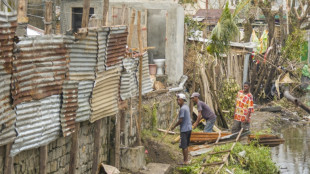 Madagascar cyclone death toll rises to 40, water, power still out
Madagascar cyclone death toll rises to 40, water, power still out
-
Earl says England inspired by last year's Calcutta Cup

-
 USA romp past Dutch in T20 World Cup to keep Super Eight hopes alive
USA romp past Dutch in T20 World Cup to keep Super Eight hopes alive
-
De Minaur scraps past local legend van de Zandschulp

-
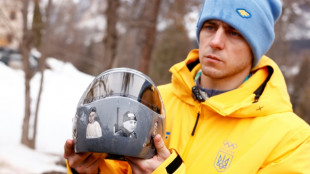 Ukrainian Heraskevych loses appeal against Olympics disqualification
Ukrainian Heraskevych loses appeal against Olympics disqualification
-
Ghana rallies round traditional tunic after foreign mockery

-
 Forest set to hire former Wolves boss Pereira: reports
Forest set to hire former Wolves boss Pereira: reports
-
England rugby captain Itoje slams Ratcliffe's 'ridiculous' immigration comments

-
 Europe should speak to Russia with 'one voice', Putin foe says
Europe should speak to Russia with 'one voice', Putin foe says
-
US Congress impasse over immigration set to trigger partial shutdown

-
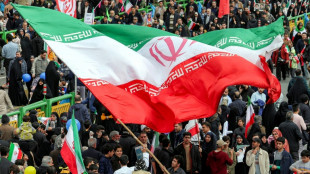 US to deploy new aircraft carrier to Middle East as Trump warns Iran
US to deploy new aircraft carrier to Middle East as Trump warns Iran
-
Ubisoft targets new decade of 'Rainbow 6' with China expansion

-
 Stocks trend lower as AI disruption worries move to fore
Stocks trend lower as AI disruption worries move to fore
-
Spurs set to hire Tudor as interim boss until end of season: reports

-
 International crew en route to space station
International crew en route to space station
-
Man City's Rodri charged over ref rant

-
 Italian biathlete Passler cleared to compete at Olympics despite positive test
Italian biathlete Passler cleared to compete at Olympics despite positive test
-
Macron slams 'antisemitic hydra' as he honours 2006 Jewish murder victim
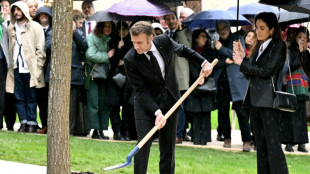
-
 Tuipulotu warns England to beware 'desperate' Scotland in Six Nations
Tuipulotu warns England to beware 'desperate' Scotland in Six Nations
-
Cash-starved French hospitals ask public to pitch in

-
 US consumer inflation eases more than expected to lowest since May
US consumer inflation eases more than expected to lowest since May
-
Germany's Merz urges US to repair ties with Europe

-
 Europe seeks new 'partnership' with US at security gathering
Europe seeks new 'partnership' with US at security gathering
-
Fresh water leak adds to Louvre museum woes

-
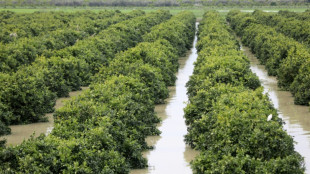 Floods wreak havoc in Morocco farmlands after severe drought
Floods wreak havoc in Morocco farmlands after severe drought
-
Russia, Ukraine to hold talks in Geneva on February 17-18
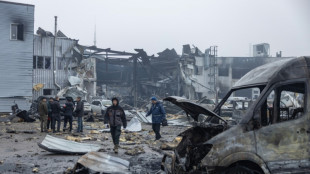
-
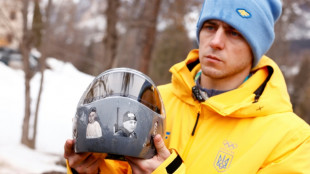 Ukraine's Heraskevych hopes 'truth will prevail' in Olympics appeal
Ukraine's Heraskevych hopes 'truth will prevail' in Olympics appeal
-
Dumplings and work stress as Chinese rush home for Lunar New Year

-
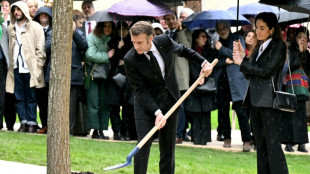 Macron denounces 'antisemitic hydra' as he honours 2006 Jewish murder victim
Macron denounces 'antisemitic hydra' as he honours 2006 Jewish murder victim
-
India-Pakistan: Hottest ticket in cricket sparks T20 World Cup fever
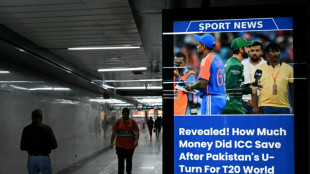
-
 Cross-country king Klaebo equals Winter Olympics record with eighth gold
Cross-country king Klaebo equals Winter Olympics record with eighth gold
-
Ukraine's Heraskevych appeals to CAS over Olympic ban as Malinin eyes second gold

-
 Stocks mostly drop after Wall Street slide
Stocks mostly drop after Wall Street slide
-
Sophie Adenot, the second French woman to fly to space


Vast network of lost ancient cities discovered in the Amazon
Archaeologists have discovered the largest and oldest network of pre-Hispanic cities ever found in the Amazon rainforest, revealing a 2,500-year-old lost civilisation of farmers.
The vast site, which covers more than 1,000 square kilometres (385 square miles), was long hidden by the jungle in the Upano valley on the foothills of the Andes mountain range in eastern Ecuador.
However, a French-led team of researchers have used laser-mapping technology taken from above, as well as archaeological excavations, to uncover 20 settlements -- including five large cities -- connected by roads.
Stephen Rostain, an archaeologist at France's CNRS research centre and the lead author of a new study, told AFP it was like discovering "El Dorado".
The scale of this urban development -- which includes earthen homes, ceremonial buildings and agricultural draining -- has never been seen before in the Amazon, Rostain said.
"It is not just a village, but an entire landscape that has been domesticated," he said.
Rostain said he detected the first traces of this lost civilisation 25 years ago, when he spotted hundreds of mounds in the area.
In 2015, his team of researchers flew over the region using laser technology called Lidar, which allowed the scientists to peer through the forest canopy as "if we had cut down all the trees," Rostain said.
- 'Like New York' -
They found more than 6,000 earthen mounds, rectangular earthen platforms which served as the base of homes for the "Upano people".
On the floors, the researchers found "all the domestic remains one would see in a home -- fireplaces, large ceramic jars for beer made out of corn, grinding stones, seeds, tools," Rostain said.
Remarkably, the cities are all criss-crossed by large, straight streets -- "just like in New York," he added.
Some cities have a large central alley where people from the surrounding villages gathered, Rostain said, comparing these streets to those of the ancient Teotihuacan city in modern-day Mexico.
Rostain speculated that several thousand people could have attended such ceremonial events, though further analysis is being carried out to estimate how many people lived in the region.
Some of the mounds are up to 10 metres (33 feet) tall, suggesting they were not homes but communal areas for rituals or festivals.
The small fields show that the agrarian society "took advantage of the smallest empty space to ensure it bore fruit," Rostain said.
All these accomplishments would have needed leaders, planning, engineers to plan the roads, he suggested.
What happened to the previously unknown Upano people -- so named by the researchers -- is not known.
Construction on the first mounds is thought to have begun between 500 BC and 300-600 AD, around the time of the Roman empire.
Other large villages discovered in the Amazon date from between 500-1,500 AD, according to the study published in the journal Science on Thursday.
But this network of cities is "much older and much bigger," Rostain said.
The discovery shows that "there were not only hunter-gatherers in the Amazon, but also complex, urban populations," he added.
Rostain said that "a certain Western arrogance" had long deemed it impossible that -- prior to European colonisation -- people in the Amazon were capable of building such a complex society.
"It's time to reconsider this disparaging view of the people of the Amazon."
F.Pedersen--AMWN

